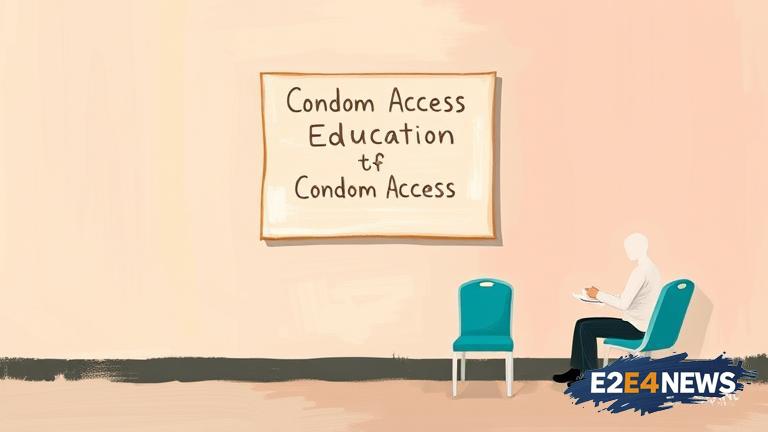The issue of condom access in schools has become a highly debated topic, with proponents arguing that it is essential for promoting sexual health and reducing the risk of unintended pregnancies and sexually transmitted infections (STIs) among adolescents. On the other hand, opponents claim that providing condoms in schools may encourage promiscuity and undermine parental values. However, studies have shown that comprehensive sex education, which includes access to condoms, can lead to better health outcomes and more responsible decision-making among young people. In many countries, including Thailand, the prevalence of STIs and unintended pregnancies among adolescents remains a significant concern. The Thai government has implemented various initiatives to promote sexual health education, but more needs to be done to address the stigma and lack of access to reproductive health services. By providing condoms in schools, educators can help reduce the risk of STIs and unintended pregnancies, while also promoting a culture of safe sex and responsible decision-making. Moreover, it is essential to recognize that adolescents are already engaging in sexual activity, and it is the responsibility of adults to ensure they have access to accurate information and resources to protect themselves. The availability of condoms in schools can also help reduce the stigma associated with sexual health and encourage open discussions about safe sex practices. Furthermore, it is crucial to involve parents and the community in the development of sex education programs to ensure that they are culturally sensitive and effective. The Thai Ministry of Education has taken steps to incorporate sex education into the school curriculum, but more needs to be done to ensure that students receive comprehensive and accurate information. In addition, schools can play a critical role in promoting healthy relationships and providing support for students who may be experiencing sexual coercion or abuse. By working together, educators, policymakers, and community leaders can help create a safer and more supportive environment for adolescents to make informed decisions about their sexual health. Ultimately, the goal of providing condoms in schools is to promote the health, well-being, and safety of young people, and it is essential that we prioritize their needs and well-being in this critical aspect of their lives. The debate on condom access in schools is not just about sex education; it is about promoting a culture of safety, respect, and responsibility. As such, it is essential that we approach this issue with sensitivity, compassion, and a commitment to the well-being of all students. By doing so, we can help create a brighter, healthier future for young people in Thailand and around the world. The importance of condom access in schools cannot be overstated, and it is crucial that we continue to push for policies and programs that prioritize the sexual health and well-being of adolescents.
Mon. Oct 20th, 2025
